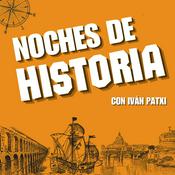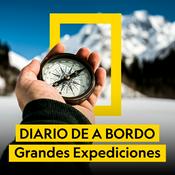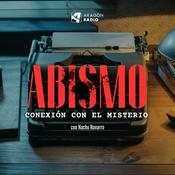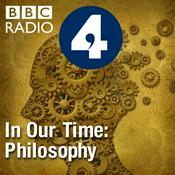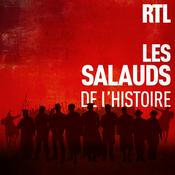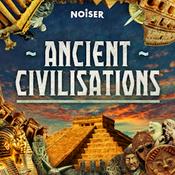237 episodios
- On this episode of Unsupervised Learning Razib talks to Peter Nimitz about the rise of the Slavs. His Substack, titled Nemets, explores world history through the lenses of archaeology, paleogenetics, and historical processes. His writing focuses on "deep history," such as the Bronze Age Collapse and the migration of Indo-European peoples, while connecting these ancient shifts to broader patterns of civilizational rise and fall. Nimitz often integrates technical data from genetics and climate science to challenge traditional narratives about nomadic tribes and early state formations across Eurasia. Beyond antiquity, the newsletter also touches on modern geopolitical developments and regional studies, ranging from the war in Ukraine to the cultural history of the Americas.
Razib and Nimitz explore the thousands of years of Slavic history and prehistory, from their fragmentary mentions in antiquity, to their explosion in the Middle Ages. Nimitz discusses the many archaeological cultures in northeastern Europe that might be candidates for the proto-Slavs as they emerged from the Corded Ware Culture during the Bronze Age, as well as the historical, cultural and genetic effects of the Slavic migrations that impacted Christian Europe after 600 AD. He also addresses the role of Slavs as one of Europe's preeminent ethnolinguistic configurations in early modern Europe. - On this episode Razib talks to Jesse Arm, VP of external affairs at the Manhattan Institute. His writing and commentary have appeared in the New York Times, Wall Street Journal, The Atlantic, New York Post, Fox News, City Journal and Jerusalem Post. Arm graduated with honors from the University of Michigan, where he majored in international political economy, and studied language and international affairs at Tel Aviv University. He has also worked for Senator Tom Cotton and Representative Dan Benishek, and the analytics arm of American Continental Group, a major lobbying firm.
Razib and Arm discuss the perceptions and attitudes of Gen Z Republicans, focusing on a group of 18-29-year-olds in Nashville, TN. Arm notes that while Gen Z feels economic anxiety, they are also entrepreneurial and comfortable with the world of social media. Gen Z Republicans are religious, like previous generations, but less likely to be married or have long-term partners at the same age as earlier cohorts. They express a desire for politics to be entertaining, similar to reality TV. The conversation also touches on the influence of social media on their views, the power of influencers like Nick Fuentes, and the potential for future political figures to emerge from the creator class. Arm also addresses the impact of intergenerational wealth transfer on political attitudes. - On this episode of Unsupervised Learning, Razib talks to Davide Piffer, whose Substack examines genetic differences between populations. Piffer has been publishing on human genetic variation for a decade, and recently started a Substack, Piffer Pilfer, exploring similar issues in detail over a series of posts.
Razib asks Piffer about the difficulties in analyzing polygenic scores from quantitative traits in ancient DNA samples. How does he do in technical terms, from genome quality to imputation to ancient populations from modern ones? Then, they discuss some of Piffer's findings, in particular, his work on pigmentation. Piffer talks about how he discovered that modern European pigmentation, and in particular, light complexion, is the product of both admixture from different populations with different characteristics and natural selection over the millennia. Piffer talks about how he discovered that selection for lighter pigmentation continued into the Iron Age. - Today Razib talks to Aneil Mallavarapu, a scientist and technology leader based in Austin, Texas, whose career bridges the fields of biochemistry, systems biology, and software engineering. He earned his doctorate in Biochemistry and Cell Biology from the University of California, and has held academic positions at Harvard Medical School, where he contributed to the Department of Systems Biology and developed the "Little b" programming language. Mallavarapu has transitioned from academic research into the tech and venture capital sectors, co-founding ventures such as Precise.ly and DeepDialog, and currently serving as a Managing Partner at Humain Ventures. He remains active in the scientific community through local initiatives like the Austin Science Network.
Most of the conversation centers around Mallavarapu's arguments outlined in his Substack The Case Against Conscious AI - Why AI consciousness is inconsistent with physics. The core of his argument rests on the "Simultaneity Problem" and the "Hard Problem of Physics," which involve non-locality and the memorylessness of artificial intelligence phenomena. Though Mallavarapu believes that artificial intelligence holds great promise, and perhaps even "artificial general intelligence" (AGI) is feasible, he argues that this is a distinct issue from consciousness, which is a property of human minds. Razib also brings up the inverse case: could it be that many organisms that are not particular intelligence, also have consciousness? What does that imply for ethics of practices like eating meat? - On this episode Razib, talks to Richard Hanania, a returning guest to the podcast. Hanania holds a Ph.D. from UCLA, a J.D. from the University of Chicago, and an undergraduate degree from CU Boulder in linguistics. He is a regular contributor to the Boston Globe and UnHerd, and has his own newsletter. Hanania is also the author of The Origins of Woke: Civil Rights Law, Corporate America, and the Triumph of Identity Politics.
Razib and Hanania talk about his new book Kakistocracy: Why Populism Ends in Disaster, and his developing views on populism and immigration. They highlight the rise of populism on the Right, the rejection of cognitive elitism, and the impact of social media on political discourse. Hanania criticizes the far-right's nativism, particularly against Indian immigrants, and the rise of anti-Semitism, both as a feature of low-IQ populism. They also touch on foreign policy, noting the failures of authoritarian regimes like Russia and China, and the potential for democratic systems to prevail.
Hanania brings up cultural differences, particularly in Asia, and the impact of personality traits on success. They talk about the Big Five personality traits, and note that disagreeableness and low neuroticism are linked to professional success, especially in men. Razib also brings up the 2017 James Damore Google memo controversy, highlighting the cultural and political implications down to the present. Hanania reflects on his experiences with cancel culture and the evolving acceptance of diverse viewpoints. They also discuss the role of Substack in promoting free speech and the challenges faced by platforms in maintaining this principle.
Más podcasts de Historia
Podcasts a la moda de Historia
Acerca de Razib Khan's Unsupervised Learning
Razib Khan engages a diverse array of thinkers on all topics under the sun. Genetics, history, and politics. See: http://razib.substack.com/
Sitio web del podcastEscucha Razib Khan's Unsupervised Learning, Todo Concostrina y muchos más podcasts de todo el mundo con la aplicación de radio.es
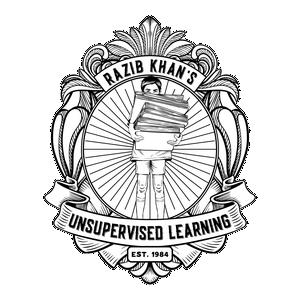
Descarga la app gratuita: radio.es
- Añadir radios y podcasts a favoritos
- Transmisión por Wi-Fi y Bluetooth
- Carplay & Android Auto compatible
- Muchas otras funciones de la app
Descarga la app gratuita: radio.es
- Añadir radios y podcasts a favoritos
- Transmisión por Wi-Fi y Bluetooth
- Carplay & Android Auto compatible
- Muchas otras funciones de la app


Razib Khan's Unsupervised Learning
Escanea el código,
Descarga la app,
Escucha.
Descarga la app,
Escucha.








